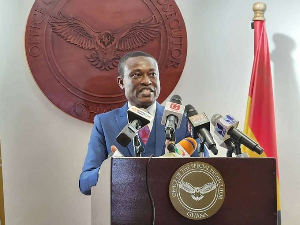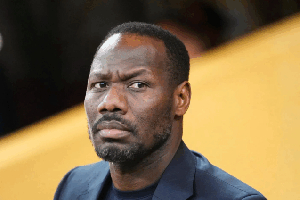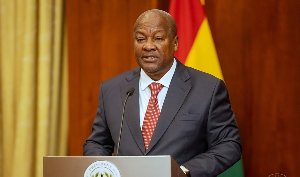Ishmael Mensah Blog of Sunday, 29 December 2024
Source: Ishmael Mensah
Prof. Kwaku Azar: Dome Kwabenya rerun: EC is creating a risky precedent
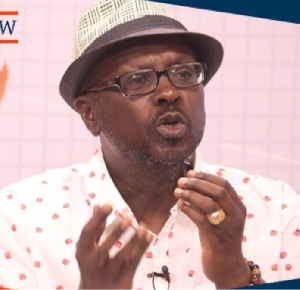
The Electoral Commission's (EC) decision to mandate a repeat of the election at one polling station in the Dome Kwabenya Constituency has sparked grave concerns from Professor Stephen Kwaku Asare, a Ghanaian lawyer based in the United States.
He claims that this ruling goes against the core idea that the people's will comes first, which courts have continuously maintained, including in the famous case of Akufo-Addo et al. v. Mahama et al.
"The ultimate goal of election results is to reflect the will of the electorate," Professor Asare clarified. Rejecting results based only on the medium employed is like throwing out the good with the bad if the outcomes stated on the training sheet are true and verifiable.
He issued a warning that such measures run the risk of depriving voters of their right to vote and undermining the foundation of democratic governance.
Professor Asare expressed additional worry about the EC's use of procedural grounds to invalidate results, specifically at the Abokobi Women's Development Centre 2 polling station where training sheets were utilized in lieu of the official poll statement.
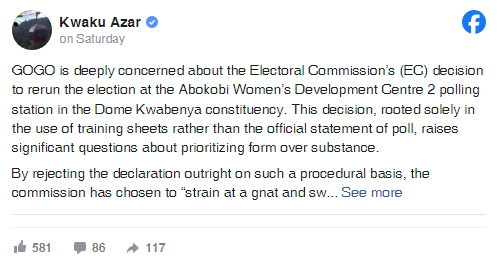
He warned that this ruling sets a dangerous precedent and characterized it as putting form above content.
"The commission strains at a gnat and swallows a camel by rejecting the declaration on a procedural technicality without considering the substantive accuracy of the results," he said. "Electoral integrity depends on following the correct procedures, but outright rejection without verification erodes public trust in the process."
In order to maintain procedural integrity and uphold the confidence of the public, he contended that the EC should have taken a more egalitarian stance by confirming the results and re-declaring them using the appropriate forms. Rather, the ruling seems to prioritize procedural strictness over openness and equity.
Professor Asare highlighted the necessity of voting processes being flexible in order to handle human mistake without undermining the will of the electorate, using the Akan proverb, "When the rhythm of the drum changes, the dance steps must adapt." "It gives the impression that technical errors, no matter how small, can override the sovereign will of the people when declarations on procedural errors are rejected without considering other options," he said.
While there are protections in place to validate results, he also emphasized the inherent complexity of elections and the fact that procedural errors cannot always be completely avoided. "The voters acted in good faith in carrying out their democratic duty. Their opinions shouldn't be ignored just because an EC official didn't follow the correct protocols. It is against fairness and justice ideals to punish voters for errors that are out of their control.
In closing, Professor Asare urged the EC to find a balance between fairness and rigorous procedural adherence. "This balance is not achieved by a decision that disregards options for verification and correction," he emphasized.
He wrote, "Da Yie," in his Facebook post.


